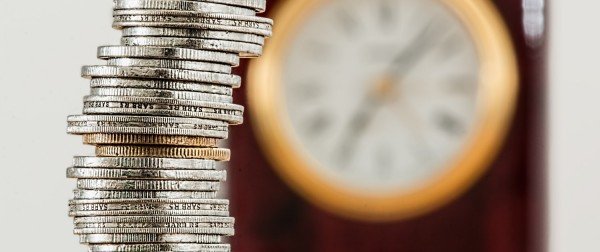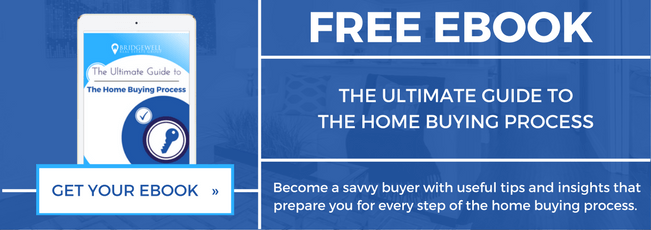Minimum Down Payment BC
Down Payment Requirements When Purchasing a House
If you’re thinking of purchasing a home then it is very important to understand what a down payment is and how it works.
This blog goes through all of the basics of a down payment, along with minimum down payment requirements.
We also review frequently asked questions to help you make a decision on how much to put towards your purchase.
Read for important details and everything you need to down about down payments!
What is the minimum down payment in Canada?
The rules for the minimum down payment in Canada are as follows:
- Purchase price of $500K or less: Minimum 5% down payment
- Purchase price of less than $1.5M: 5% on the portion under $500K, 10% on the portion between $500K-$1.5M
- Purchase price $1.5M or above: 20% down payment total
- Investment properties: 20% down total
Keep in mind that the minimum down payment is subject to the lender’s approval, and that they may request more if you have a poor credit history or are self-employed.
How to Calculate Your Minimum Down Payment
—
Example Minimum Down Payment BC #1: A home that is worth $500,000
- The minimum down payment is 5% for this bracket; therefore, numerically the minimum down payment on a $500,000 purchase price is $25,000.
Example Minimum Down Payment BC #2: A home that is worth $900,000
- Therefore, on $900,000 purchase, you would pay $25,000 to cover the minimum for the 1st $500K, and then $40,000(10%) for the amount between $500,000 and $1.5M (10% of $400,000).
- Total $65,000 as a minimum down payment for a home purchased for $900,000.
Example Minimum Down Payment BC #3: A home that is worth $1,700,000
- For example, on a purchase of $1,700,000, the down payment of 20% would be calculated on the entire balance – not on a sliding scale.
- Total minimum down payment in this scenario is $340,000.
For more information on down payments in BC, read our blog post here: Down Payment 101
The size of your down payment & what it affects
The size of your down payment affects three main things:
- Your affordability and how much you can purchase
- The type of mortgage you get & whether you need to purchase mortgage default insurance
- Your monthly mortgage payment
If you put a minimum down payment it will affect your affordability
If you put the minimum down payment towards your purchase, then it means you will need to qualify for a larger amount of funds.
Your down payment is a benchmark that is used to determine your maximum affordability. However, there are many other factors such as income, debt levels, credit score, and whether your are salary vs. self-employed that will also affect your affordability.
Ultimately, the more you have in down payment the more you’ll be able to afford & the more likely it is for the lender to overlook hiccups in various other factors.
Your down payment affects your monthly mortgage payment
A larger down payment means that you need less money from the lender to fund the mortgage. As a result of this, the more you put down, the less you’ll pay in your monthly mortgage payment and interest.
For some, putting the minimum amount down allows you to get in to the market rather than being priced out. If that’s the case for you, putting the minimum amount down is still OK – you just want to make sure that you can still afford your monthly mortgage payment.
If you put a minimum down payment it will determine the amount of CMHC insurance premium you pay
Mortgage loan insurance is a type of insurance premium that is charged by the mortgage lender in the case that you default on your mortgage payment, as buyers that put less money down are considered riskier in the lender’s eyes.
The amount of down payment that you put towards your purchase will determine whether you are a high-ratio mortgage (less than 20% down) or a conventional mortgage (more than 20% down).
If you are putting the minimum amount down, and are purchasing a property that is less than $1,500,000, then you will be considered a high-ratio mortgage (less than 20% down) and be required to have mortgage default insurance.
This premium can be paid as a lump sum at the time of purchase, or added to the principal amount of your mortgage and paid regularly when you make your mortgage payments. If it is is added to your principal amount then you will also be paying interest on your premium.
If you’re looking to find premiums based on your down payment amount you can check out the 3 mortgage insurers that we have in Canada:
When is the Down Payment is Due?
The down payment is an amount of money that the buyer pays towards their purchase, while the rest of the purchase price is funded by a mortgage lent by a bank to be repaid over a period of time.
The down payment is due at the time that the property completes, but you are often meeting your legal representation to give the funds 1-3 business days prior.

The Deposit Forms a Part of Your Down Payment
If a real estate purchases completes as planned, the deposit (initial good faith money put forward by the buyer) is then credited towards the purchase price and forms a part of the down payment.
Therefore, the deposit is a part of the down payment but they are not the same thing. For example:
- You plan to put 20% down total
- The deposit is 5% and given at subject removal
- Later, at completion you must give the remaining 15% of your down payment funds (20% – 5% deposit already given)
For more on deposit vs down payment, visit our blog: Deposit vs Down Payment
Mortgage Down Payment Assistance and Programs
RRSP Home Buyers Plan (HBP)
If you are a first time home buyer, you may be able to use funds from your RRSP account via the government’s Home Buyers Plan (HBP).
There are limits to the amount that you can take out as a first time home buyer, and there is a repayment period that you have to comply with in order to use those funds towards your purchase tax free.
Keep in mind that the money must be in your RRSP for at least 90 days before the purchase of your house for it to be valid.
For more information on the Home Buyers Plan, visit the government website: Home Buyers Plan
First Home Savings Account (FHSA)
A first home savings account (FHSA) is a government plan which allows first time home buyers to save up money in the FHSA tax free with plans to purchase their first home.
If you already set up a FHSA and are looking to access the funds for your first home purchase, this is something that a qualifying purchaser could do.
For more information on the FHSA, visit the government website: First Home Savings Account
For more programs, incentives, and first time home buyer exemptions refer to the Government of Canada website.
—
If you’re looking to purchase a property in the Greater Vancouver area and are looking for a realtor to help represent you then reach out to us!
Start a conversation with a local realtor by calling or texting 604-319-0200 or email [email protected]. We’re here to help get your home buying journey started!



